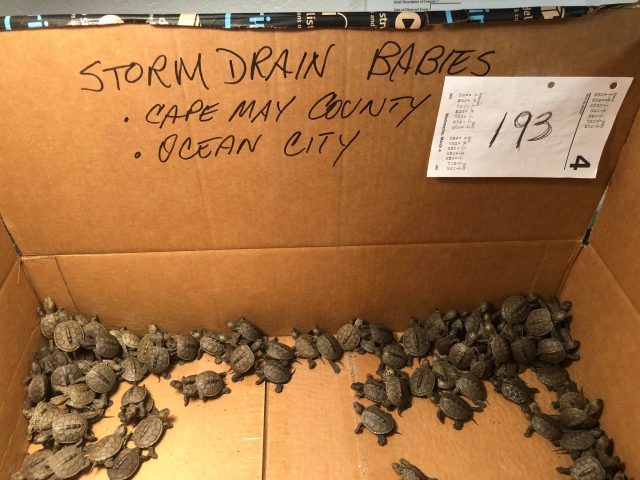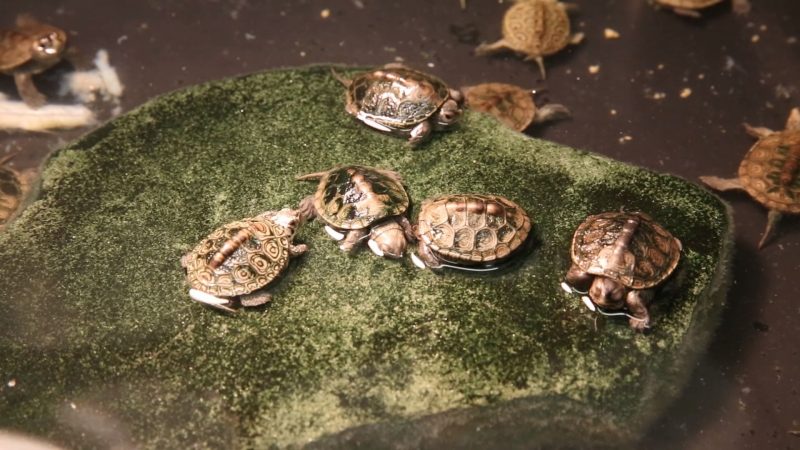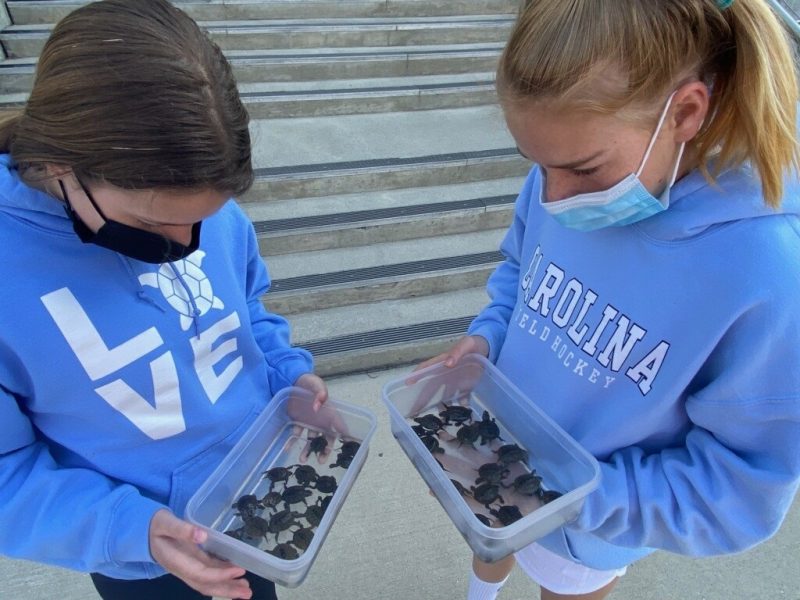
By MADDY VITALE
Turtle time is upon us and nesting season for diamondback terrapins is starting.
But what about the hatchlings emerging from hibernation?
Turtle lovers from Ocean City and Ventnor did their part to help the tiny terrapins to safety, locating hundreds of them – 826 to be exact – and scooped them out of storm drains.
Then they brought them to safety.
Stockton University’s Vivarium welcomed the hatchlings.
Ocean City residents Marlene Galdi and Joanne Freas did their part in Cape May County, while neighboring Atlantic County turtle volunteers headed by Evelyn Kidd did theirs to rescue the hatchlings from storm drains.
Galdi and Freas regularly look for terrapins. The women found that curbs aren’t the only obstacle for the turtles. They slip through the cracks of storm drains.
“As we passed the storm drains, we noticed that there was activity in them. When we looked closer, we saw that there were baby terrapins swimming in the storm drains,” Galdi said in a Stockton news release.

Galdi and Freas made a scooper from an aquarium net and attached it to a bamboo pole.
It seems to be working.
For the last couple of weeks, the turtle rescue volunteers have been collecting terrapins to bring to Stockton University. Hatchlings spend about a year at the college under optimum growing conditions to give them a head start prior to being released back into the wild, the release states.
“A good percentage of the terrapins that do come from storm drains have eye infections. They haven’t been in the cleanest water because everything runs into the storm drains,” explained John Rokita, assistant supervisor of Academic Lab Services at Stockton.
Terrapins that arrive with an infection are isolated from the general population in the Vivarium until they are healthy, he noted.
He emphasized that while predators may not be in the drains, they are lurking there when they are empty.
“The water goes out into the big open bay, and they are little turtles. They are just like fish food out there,” Rokita said.
And the hatchlings that hibernated that haven’t been located in drains are moving toward the marsh.
But the trek can be arduous. Diamondback terrapins can live for 30 to 40 years, but face many obstacles.
Traffic, predators, construction and other dangers make it difficult. Terrapins are not listed as threatened or endangered in New Jersey, but they are listed as decreasing.
Nesting season for the diamondback terrapin begins around the last week in May and goes through the third week in July.
But just one egg in a thousand grows up to be an adult turtle, experts said.
“There is so much destruction in their habitat. The females lay eggs in people’s yards and have a hard time making it to the bay,” Kidd said. “It is our job to help them at least to make it to the bay. They are special to our community and our neighborhood.”








